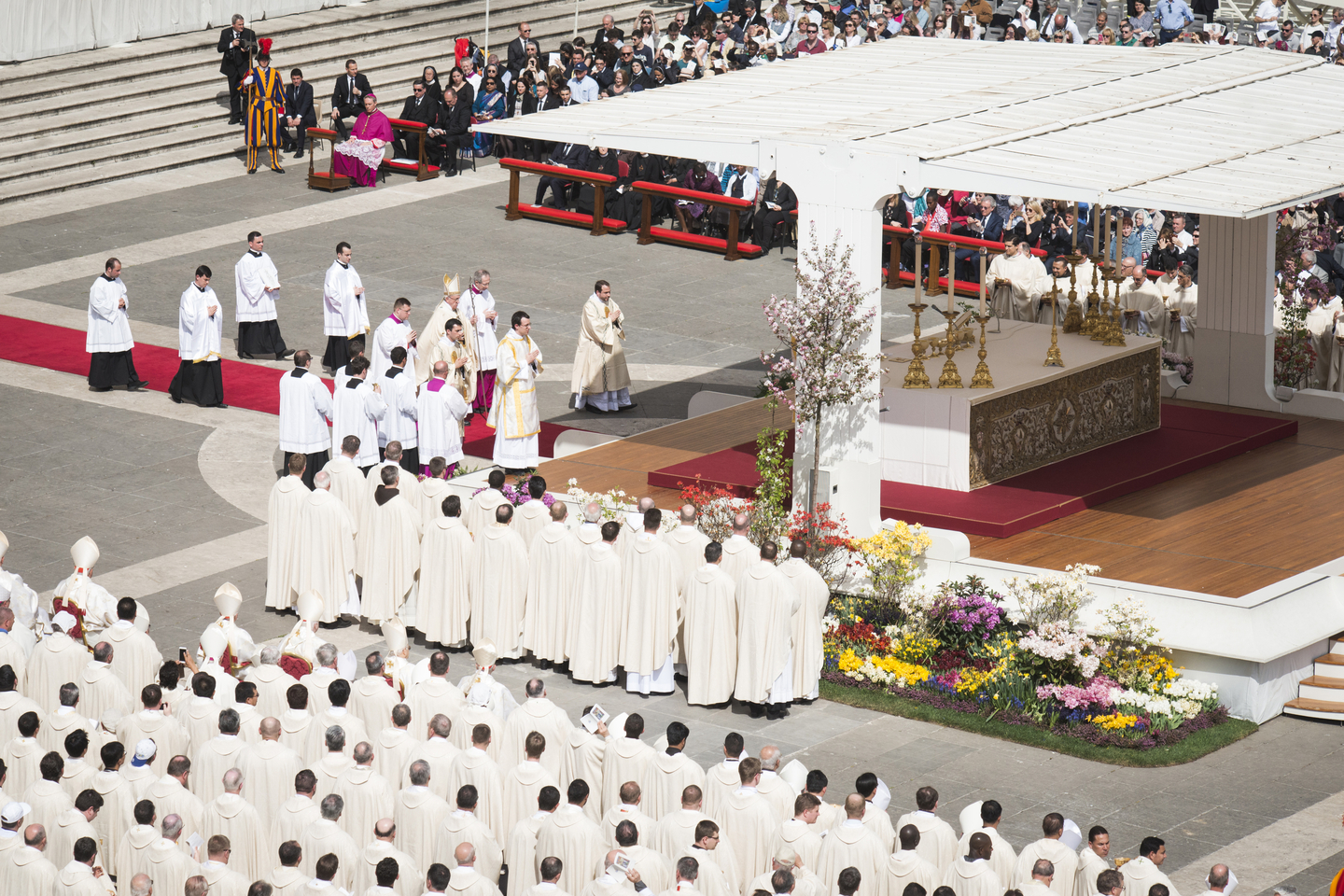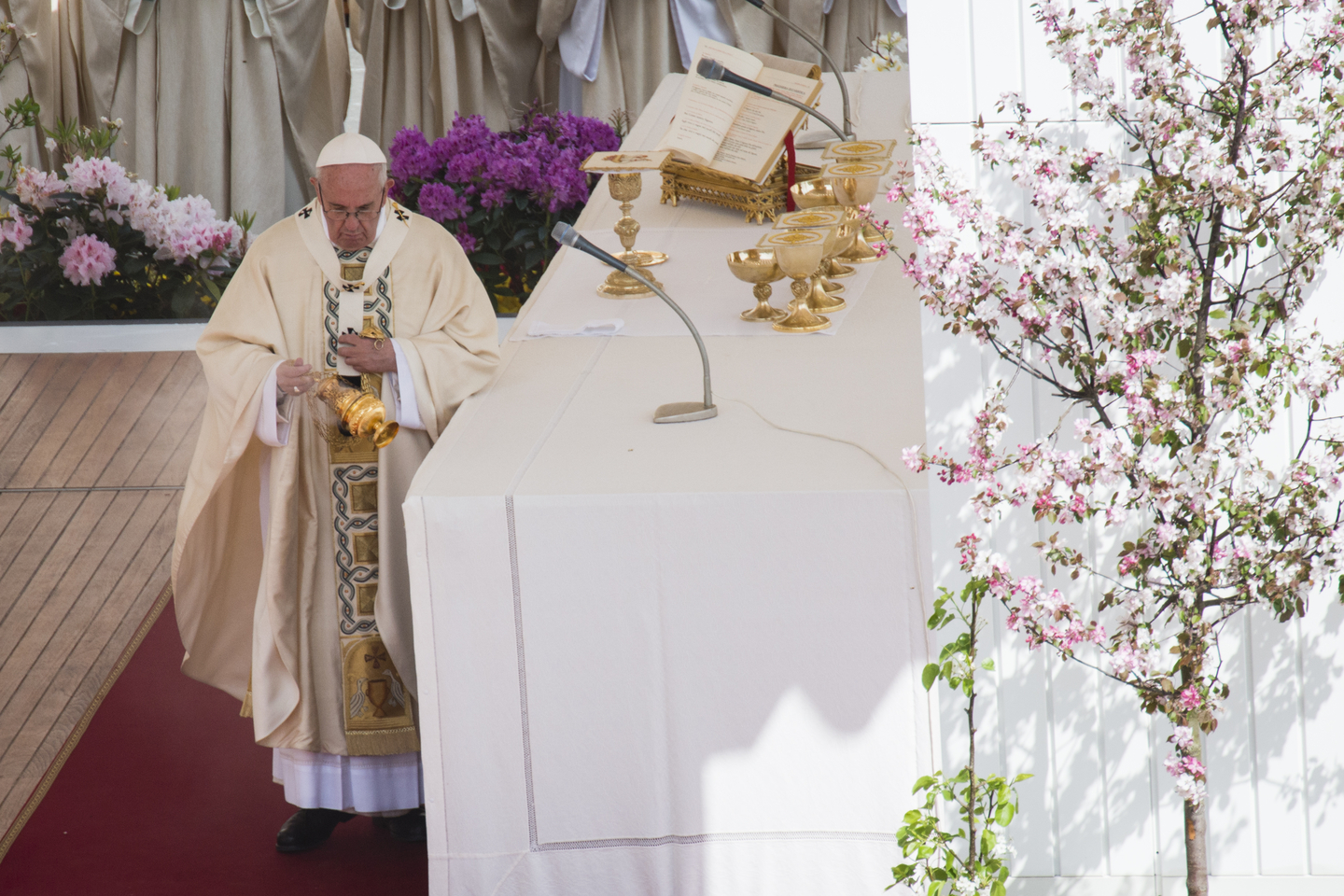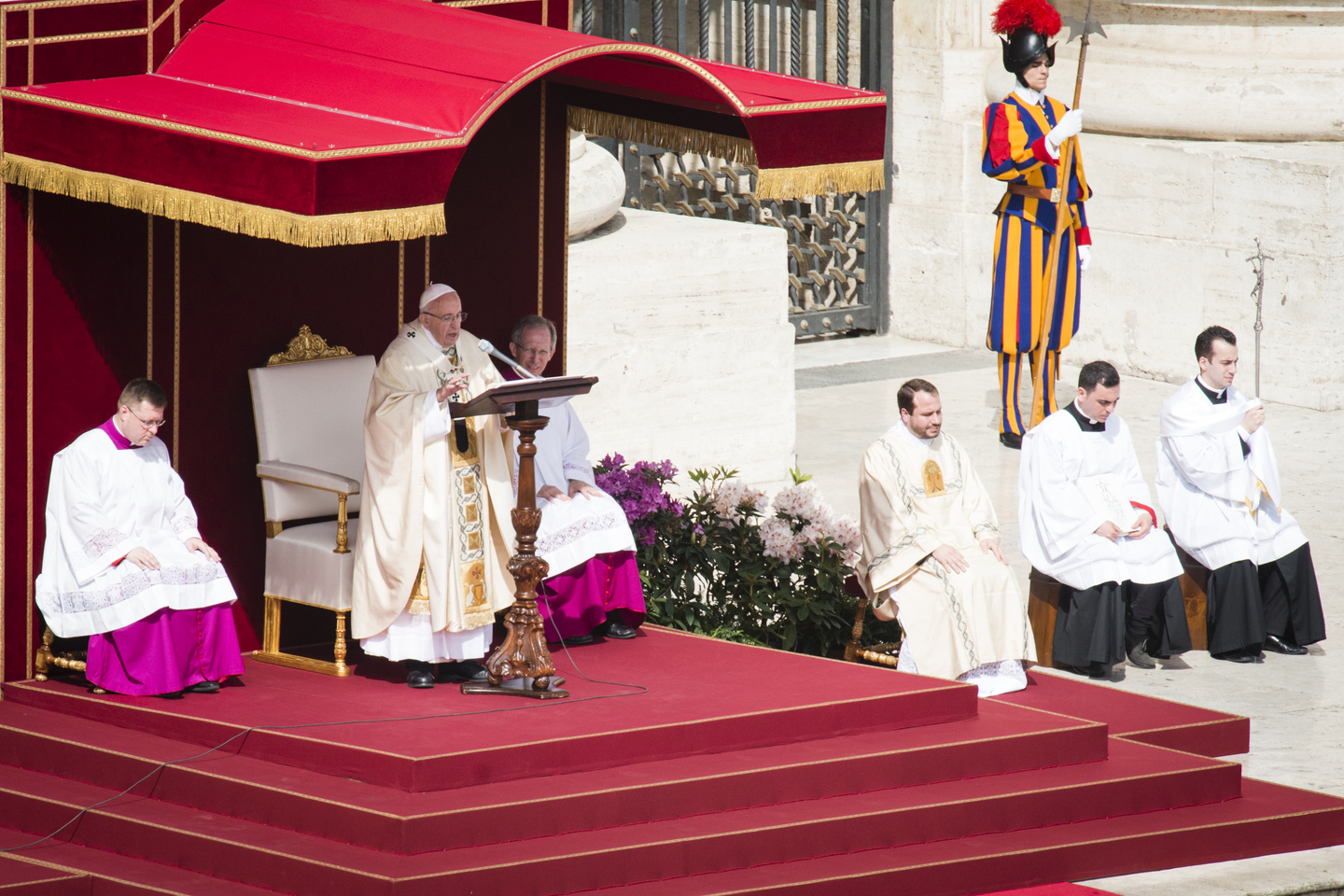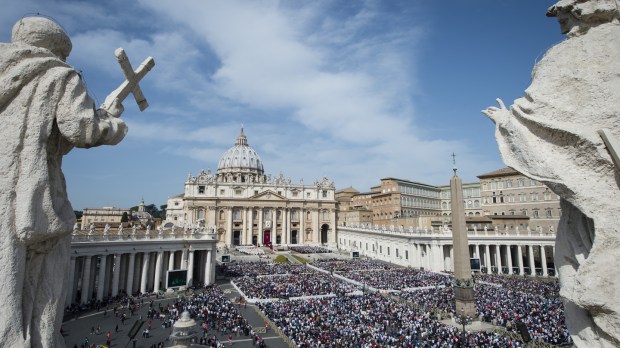VATICAN CITY — Jesus’ disciples are called to draw continually from the well of the Father’s mercy and bring it to the world, Pope Francis in his homily at Holy Mass outside St. Peter’s Basilica on Divine Mercy Sunday.

In the Christian life there are several wellsprings where Christ awaits us to enable us to drink of the Holy Spirit, including prayer, meditation on God’s word, the liturgy and the sacraments, most especially the Holy Eucharist.

In her diary, St. Faustina recounts the Lord describing to her the fountain of mercy which is poured out on souls in the sacrament of confession. In a striking passage, she writes:
“Today the Lord said to me, ‘Daughter, when you go to confession, to this fountain of my mercy, the blood and water that came forth from my heart always flows down upon your soul and ennobles it. Every time you go to confession, immerse yourself entirely in my mercy, with great trust, so that I may pour the bounty of my grace upon your soul. When you approach the confessional, know this, that I myself am waiting there for you. I am only hidden by the priest, but I myself act in your soul. Here the misery of the soul meets the God of Mercy. Tell souls that from this fount of mercy souls draw graces solely with the vessel of trust. If their trust is great, there is no limit to my generosity. The torrent of grace inundates humble souls. The proud remain always in poverty and misery, because my grace turns away from them to humble souls.” (1602, 568)
Here below we publish the official English text of the pope’s homily on Divine Mercy Sunday.

“Jesus did many other signs in the presence of the disciples, which are not written in this book” (John 20:30). The Gospel is the book of God’s mercy, to be read and reread, because everything that Jesus said and did is an expression of the Father’s mercy. Not everything, however, was written down; the Gospel of mercy remains an open book, in which the signs of Christ’s disciples — concrete acts of love and the best witness to mercy — continue to be written. We are all called to become living writers of the Gospel, heralds of the Good News to all men and women of today. We do this by practicing the corporal and spiritual works of mercy, which are the hallmarks of the Christian life. By means of these simple yet powerful gestures, even when unseen, we can accompany the needy, bringing God’s tenderness and consolation. Thus continues the great work of Jesus on Easter day, when he poured into the hearts of his fearful disciples the Father’s mercy, bringing them the Holy Spirit who forgives sins and bestows joy.
At the same time the story we have just heard presents an evident contrast: there is the fear of the disciples, who gathered behind closed doors; and then there is the mission of Jesus, who sends them into the world to proclaim the message of forgiveness. This contrast may also be present in us, experienced as an interior struggle between a closed heart and the call of love to open doors closed by sin. It is a call that frees us to go out of ourselves. Christ, who for love entered through doors barred by sin, death and the powers of hell, wants to enter into each one of us to break open the locked doors of our hearts. Jesus, who by his resurrection has overcome the fear and dread which imprison us, wishes to throw open our closed doors and send us out. The path that the risen Master shows us is a one-way street, it goes in only one direction: this means that we must move beyond ourselves to witness to the healing power of love that has conquered us. We see before us a humanity that is often wounded and fearful, a humanity that bears the scars of pain and uncertainty. Before the anguished cry for mercy and peace, we hear Jesus’ inspiring invitation: “As the Father has sent me, even so I send you” (John 20:21).
In God’s mercy all of our infirmities find healing. His mercy, in fact, does not keep a distance: it seeks to encounter all forms of poverty and to free this world of so many types of slavery. Mercy desires to reach the wounds of all, to heal them. Being apostles of mercy means touching and soothing the wounds that today afflict the bodies and souls of many of our brothers and sisters. Curing these wounds, we profess Jesus, we make him present and alive; we allow others, who touch his mercy with their own hands, to recognize him as “Lord and God” (John 20:28), as did the apostle Thomas. This is the mission that he entrusts to us. So many people ask to be listened to and to be understood. The Gospel of mercy, to be proclaimed and written in our daily lives, seeks people with patient and open hearts, “good Samaritans” who understand compassion and silence before the mystery of each brother and sister. The Gospel of mercy requires generous and joyful servants, people who love freely without expecting anything in return.
“Peace be with you!” (John 20:21) is the greeting of Jesus to his disciples; this same peace awaits men and women of our own day. It is not a negotiated peace, it is not the absence of conflict: it is his peace, the peace that comes from the heart of the Risen Lord, the peace that has defeated sin, fear and death. It is a peace that does not divide but unites; it is a peace that does not abandon us but makes us feel listened to and loved; it is a peace that persists even in pain and enables hope to blossom. This peace, as on the day of Easter, is born ever anew by the forgiveness of God which calms our anxious hearts. To be bearers of his peace: this is the mission entrusted to the Church on Easter day. In Christ, we are born to be instruments of reconciliation, to bring the Father’s forgiveness to everyone, to reveal his loving face through concrete gestures of mercy.
In the responsorial Psalm we heard these words: “His love endures forever” (Pss. 117, 118:2).
Truly, God’s mercy is forever; it never ends, it never runs out, it never gives up when faced with closed doors, and it never tires. In this forever we find strength in moments of trial and weakness because we are sure that God does not abandon us. He remains with us forever. Let us give thanks for so great a love, which we find impossible to grasp; it is immense! Let us pray for the grace to never grow tired of drawing from the well of the Father’s mercy and bringing it to the world. Let us ask that we too may be merciful, to spread the power of the Gospel everywhere, and to write those pages of the Gospel that John the apostle did not write.
Diane Montagnais Rome correspondent for Aleteia’s English edition.

